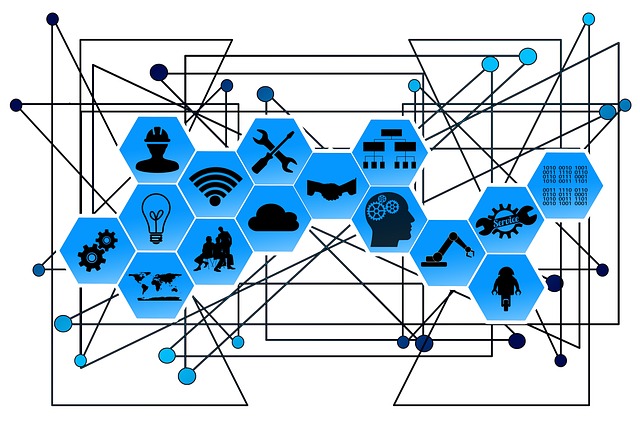# AI Technology: The Driving Force Behind Transformation in Business, Society, and Everyday Life
Artificial Intelligence (AI) has emerged as a pivotal force reshaping various facets of our lives. From enhancing business operations to influencing societal norms and transforming everyday experiences, AI technology is not merely a trend; it is a fundamental shift in how we interact with the world around us. This article delves into the multifaceted impact of AI across three critical domains: business, society, and daily life.
## AI in Business: Revolutionizing Operations and Decision-Making
Businesses today are increasingly leveraging AI to streamline operations and enhance decision-making processes. The integration of AI technologies, such as machine learning and natural language processing, enables organizations to analyze vast amounts of data with unprecedented speed and accuracy. Consequently, companies can derive actionable insights that inform strategic planning, optimize resource allocation, and improve customer engagement.
Moreover, automation powered by AI is transforming traditional business models. Routine tasks, such as data entry and customer service inquiries, are increasingly being handled by intelligent systems. By automating these processes, businesses can reduce operational costs and free up human resources for more complex and creative tasks. For instance, chatbots equipped with AI capabilities can provide instant responses to customer queries, thereby improving service efficiency and customer satisfaction.
In addition to operational improvements, AI technology is also enhancing predictive analytics. Businesses can now forecast market trends, customer behaviors, and potential risks with a higher degree of accuracy. This predictive capability allows organizations to make informed decisions that can lead to increased profitability and a competitive edge in the marketplace. As a result, companies that adopt AI-driven analytics are better positioned to adapt to changing market conditions and consumer preferences.
## AI and Society: Shaping Ethical Considerations and Social Dynamics
The societal implications of AI technology extend far beyond business efficiency. As AI systems become more integrated into everyday life, ethical considerations surrounding their use are increasingly coming to the forefront. Concerns about data privacy, algorithmic bias, and the potential for job displacement have sparked significant debate among policymakers, ethicists, and the general public.
One pressing issue is the ethical use of AI in decision-making processes. Algorithms can inadvertently perpetuate biases present in their training data, leading to unfair outcomes in areas such as hiring, law enforcement, and lending. Addressing these biases requires a concerted effort from developers and organizations to create transparent and accountable AI systems. Initiatives aimed at establishing ethical guidelines for AI usage are essential to ensure that technology serves the greater good and promotes equity in society.
Furthermore, the rise of AI is influencing social dynamics and human interactions. Social media platforms, powered by AI algorithms, curate content that shapes users’ perceptions and experiences. While this can enhance user engagement, it also raises concerns about echo chambers and misinformation. The challenge lies in finding a balance between personalized content delivery and the need for diverse perspectives that foster informed public discourse.
In response to these challenges, various stakeholders are advocating for regulatory frameworks that govern AI development and deployment. Governments, tech companies, and civil society organizations are working together to establish standards that prioritize ethical considerations while encouraging innovation. The outcome of these efforts will significantly influence how AI technology is perceived and utilized in society.
## Everyday Life: Enhancing Convenience and Personalization
On a personal level, AI technology is revolutionizing everyday life by enhancing convenience and personalization. Smart devices, powered by AI, are becoming ubiquitous in homes and workplaces. From virtual assistants like Amazon’s Alexa to smart thermostats and security systems, AI-driven technologies are streamlining daily tasks and improving quality of life.
Personalization is another significant benefit of AI in everyday life. Streaming services, e-commerce platforms, and social media applications utilize AI algorithms to analyze user preferences and behaviors. As a result, individuals receive tailored recommendations that enhance their experiences. For example, Netflix’s recommendation engine suggests shows and movies based on viewing history, making it easier for users to discover content that aligns with their interests.
Health and wellness are also being transformed by AI technology. Wearable devices equipped with AI can monitor vital signs, track fitness activities, and even provide personalized health insights. This data-driven approach empowers individuals to take control of their health and make informed lifestyle choices. Moreover, AI applications in telemedicine are improving access to healthcare services, allowing patients to consult with medical professionals remotely.
Despite the numerous advantages, the integration of AI into everyday life raises questions about dependency and privacy. As individuals increasingly rely on AI technologies, concerns about data security and the potential for surveillance are paramount. Striking a balance between leveraging the benefits of AI and safeguarding personal information will be essential as we navigate this new landscape.
## Conclusion: Embracing the AI-Driven Future
The transformative power of AI technology is undeniable, impacting business operations, societal structures, and daily life in profound ways. As organizations harness AI to drive efficiency and innovation, society grapples with the ethical implications of its widespread adoption. Meanwhile, individuals enjoy the convenience and personalization that AI brings to their everyday experiences.
Navigating the complexities of an AI-driven future will require collaboration among industry leaders, policymakers, and the public. By fostering a dialogue around ethical considerations and regulatory frameworks, we can ensure that AI technology serves as a force for good, enhancing our lives while promoting equity and accountability. Embracing this transformative technology with a mindful approach will allow us to harness its full potential, paving the way for a more efficient, equitable, and connected world.

